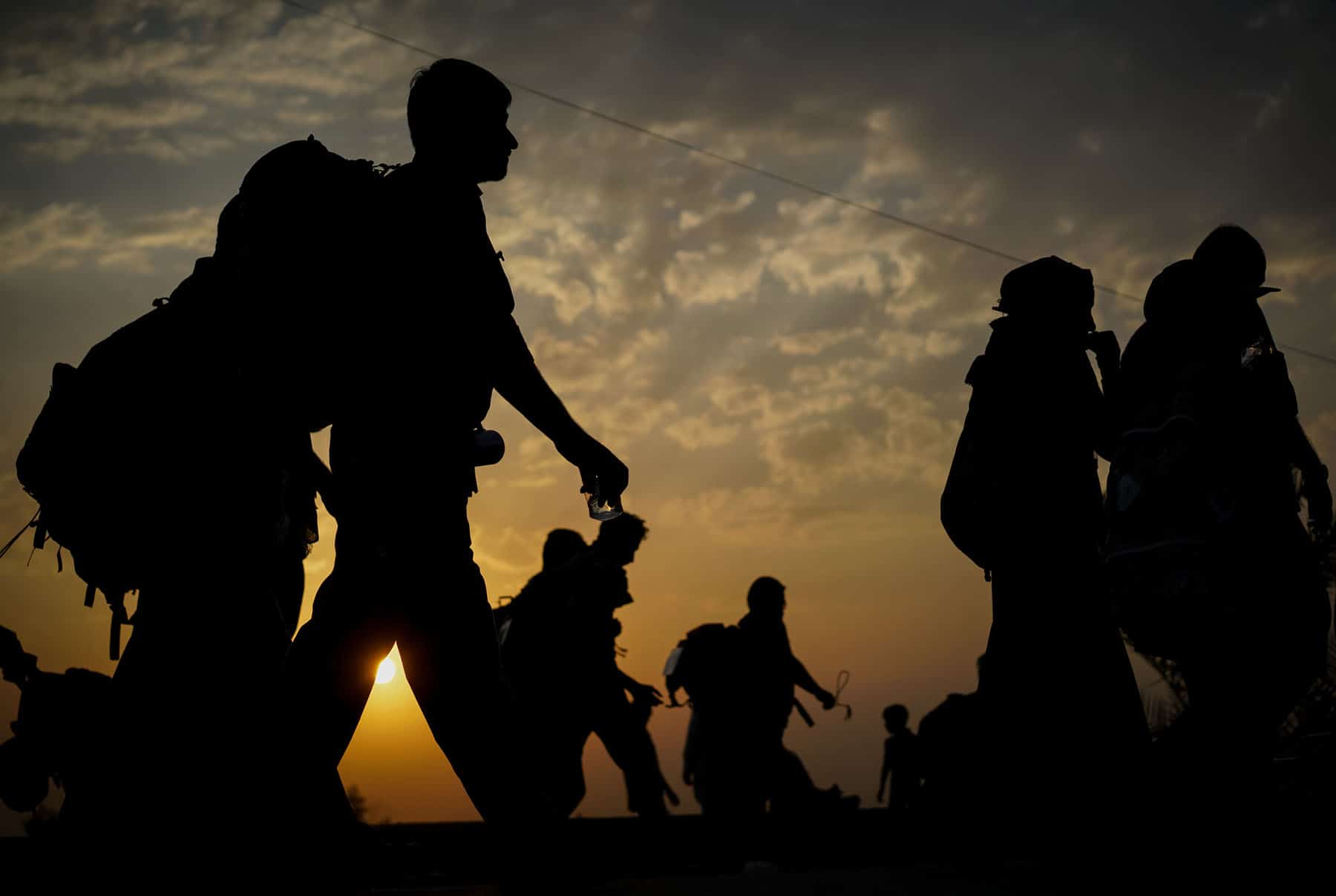 Photo by Jasmin Merdan/Getty Images
Photo by Jasmin Merdan/Getty Images “Are you OK?” a friend asked me during a phone call on election day.
“I feel anxious and helpless…even a little sick to my stomach,” I said, as I contemplated the sight of hundreds of boarded-up businesses I’d seen in our neighborhood in the hours leading up to the November 3 election. I was stressed and worried over civil unrest and possible violence in the streets, especially since my husband and I have two small children, ages three and four.
“You feel helpless?” my friend responded. “I have to say, I’m a little surprised.”
“Why would I be an exception?” I asked.
“Because I thought you, of all people, would know more than most of us how to get your things together and leave quickly if you needed to,” she said.
She was right. Who would have thought that having been a refugee in this country would potentially leave you in a better position to protect yourself and your family than hundreds of millions of other Americans?
I immediately embraced the truth — something I’d pushed to the recesses of my mind for over three decades: My full name may be unpronounceable; I may not have my birth certificate (we left it behind in the old country); many Americans may not even be able to point to my birth country (Iran) on a map. But when it comes to political instability and street violence, no one knows how to stuff a suitcase and make a run for it better than me.
No one, that is, except other refugees and immigrants.
It’s a dubious honor. It means we don’t get too attached to material possessions, whether nice silverware or entire homes; it means that when we can afford it, we try to buy clothes we love, but we’re careful not to love them too much. They could always end up on someone else’s back.
It also means many of us aren’t motivated toward civic action, especially if we escaped a tyrannical country. We know we’re now in a democracy, but sometimes, we wonder, what’s the point of even getting involved if policies have already been decided long before we voted? We’re wrong in this regard, but this is how many of us think nevertheless. Worse, we wonder if, like in the old country, anyone is keeping an eye out and remembering for whom we voted. That truly terrifies us.
“I don’t like Biden,” a relative hesitantly revealed to me days before the election. “Will anyone find out if I voted for Trump?” He actually believed the government would keep track of his voting record and weaponize it against him and his family. You can take the refugee out of the fearsome state, but you can’t take the fear out of the refugee.
You can take the refugee out of the fearsome state, but you can’t take the fear out of the refugee.
The way my friend on the phone seemingly swooned over my survival instinct and institutional memory of how and when to make a run for it — you would have thought she was admiring a character trait or weight loss success on my part. It was almost as if she was saying, “I wish I knew how to do that.”
But the only reason I know anything is because I watched my mother and father strategically (and quickly) pack suitcases for themselves and their two young daughters. What stayed? What got left behind? The process felt like a Yom Kippur poem for our possessions: Which will perish by fire and which by water? Which, like our houseplants, by neglect and which, like our heirlooms, by necessity?
We packed what we could, though some of our choices seemed dubious, especially our pointy kabob skewers, which we stuffed under some clothes and medicine. I guess my father thought the kabob skewer could be weaponized, if needed.
And there was the metaphoric packing that we endured in our worried minds and broken hearts. We couldn’t take anyone else with us, including beloved family members, but in carefully storing our moments and painful longing for one another, we didn’t leave a single memory behind. That kind of packing was much harder for all of us.
We joined tens of thousands of Jewish refugees from Iran and the former Soviet Union and were temporarily resettled in Italy in the late 1980s. As we waited and prayed for our American paperwork to be finalized, my mother and father did an audit of the suitcases. We didn’t know when we’d get the green light to come to the United States. Despite the fact that we stayed in Italy for over eight months, we prepared ourselves the possibility that we’d have to pack our bags within hours if good news arrived from the American Consulate.
In Italy, we reviewed all of the possessions we’d taken with us out of Iran. What would we retain? What would perish? We lightened our load even more, but for some reason, the kabob skewers made it past the chopping block. We still have them after 31 years in the United States.
I don’t know why I’d never thought about it before: I’ve got this. I know what I’ll take and what I’ll leave behind, right down to the toys and books that belong to our two small children.
But there’s a slight problem. In our deeply loyal but possibly short-sighted, unconditional love for this country, my family and I (especially me, as I basked in the security of marriage and motherhood this past decade) completely overlooked one thing — a whole slew of expired passports.
Tabby Refael is a Los Angeles-based writer, speaker and activist.























 More news and opinions than at a Shabbat dinner, right in your inbox.
More news and opinions than at a Shabbat dinner, right in your inbox.